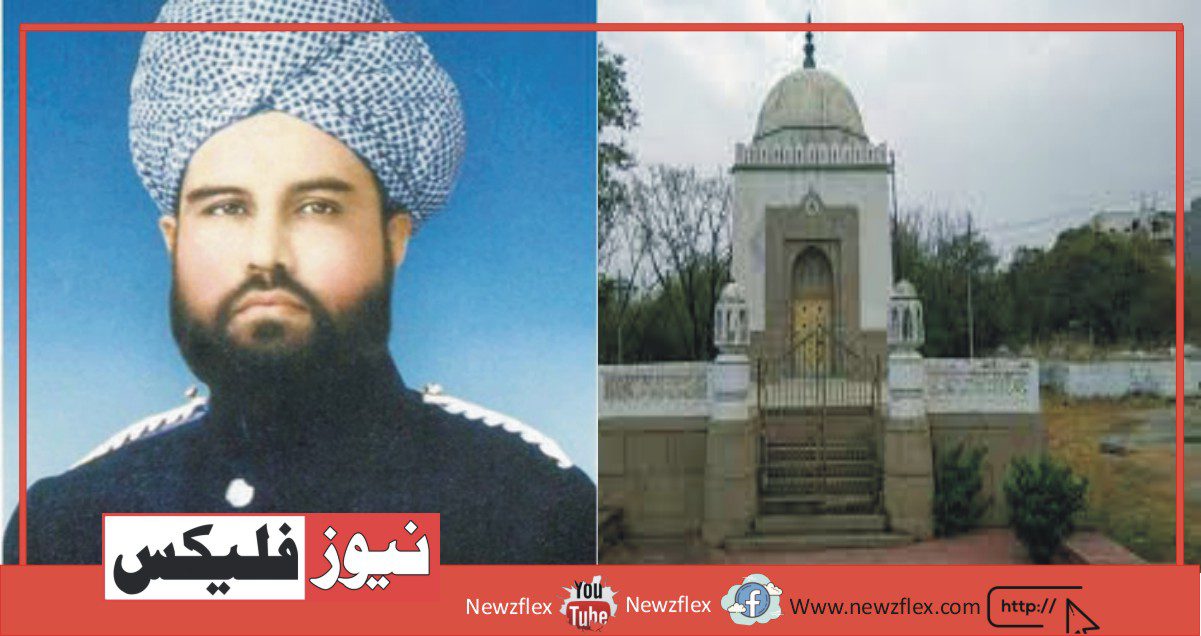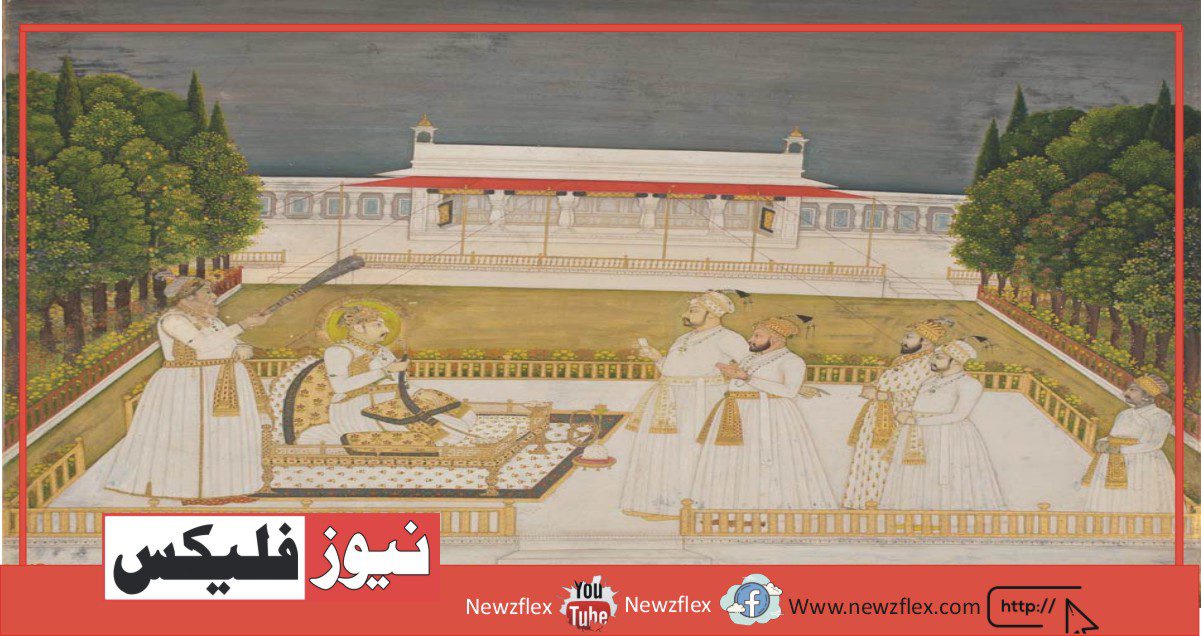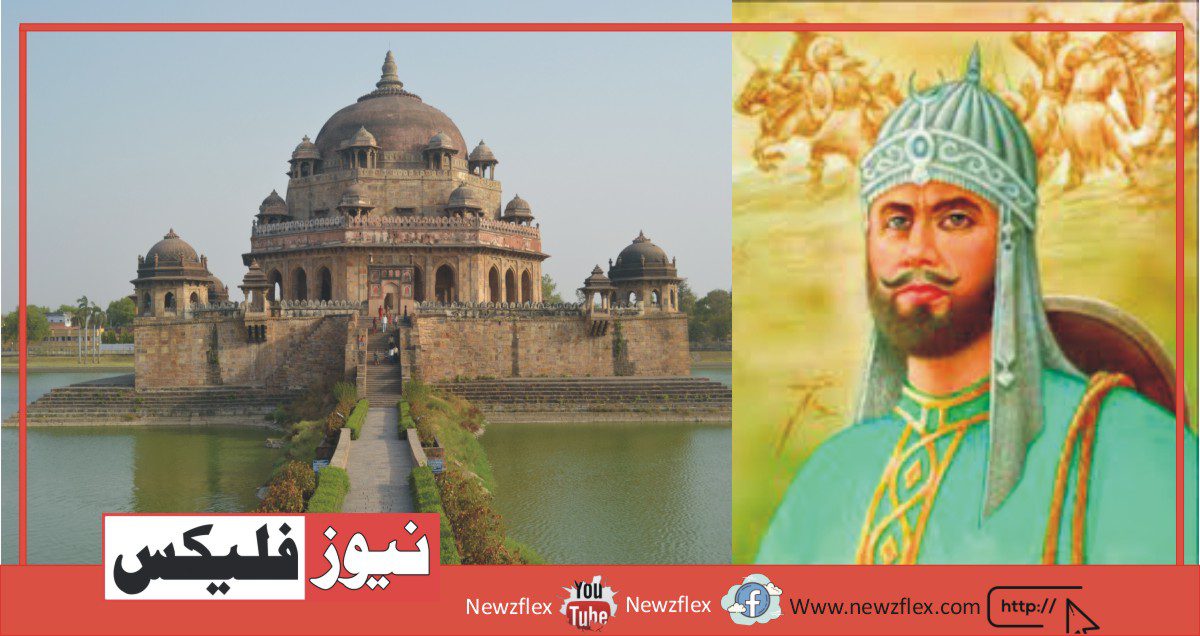
Chaudhary Mohammad Ali (1905-1980)
Chaudhary Mohammad Ali was born on 15th July 1905. He got his primary education from Nahangal Arabia School; the school was then upgraded to the middle level and Mohammad Ali completed his middle education at the same school. He was awarded a scholarship, and supported an honest performance, in the middle examination.
He received a contemporary education and up-to-date training because of his father’s attention. His father was very impressed by the idea of modern education of the Aligarh Movement. After graduating from Islamia College in 1925, he got admission to the University of Punjab and completed his M.Sc degree in 1927. He was a big fan of Allama Iqbal and copied the full edition of Iqbal’s poetry ‘Ramozee-Be-Khudi’ in his handwriting.
He was very involved in literary activities. Together with his friends, Chaudhary Muhammad Ali set up a scientific society. His activeness in Muslim student politics may be judged by his regular participation in the processions of Anjuman-e-Hamayat-ul-Islam. He worked for the annual session of the Muslim League as a volunteer. He was impressed by the thought-provoking addresses of Jinnah, but took part in active politics, in 1926, when Allama Iqbal contested the election for a seat in the Punjab Assembly.
Afterwards, in 1928, he contested the superior services exam and got commissioned in the Indian Civil Services. He joined the Audit and Accounts Department and was deputed as Accountant General in 1932 to Bahawalpur State. He was the first Indian, till that point, to be appointed to such a high rank in the State of Bahawalpur. At that time, the State was under the heavy debt of the Central Government because of improper record of accounting records.
Muhammad Ali, because the Accountant General, paid attention to the matter, which was causing poor economic conditions in the State of Bahawalpur. His reforms, in accounting records, resulted in dwindling expenditures and escalating revenue; the State was, thus, able to pay back the debt to the Central Government of India.
Mohammad Ali’s excellent performance in Bahawalpur State led him towards the Department of Finance and Commerce, and he was appointed Under Secretary in the Central Government. Next year, he was promoted to the post of Secretary to the central Finance Ministry. When war II began, he was deputed as a financial advisor for war and provide, a post never held before by any Indian.
He was awarded the title of O.B.E when he travelled to the war front in the Middle East, in 1942. Secondly, he was awarded the title of C.I.E. in 1946, when he was sent as a member of the Haidry Mission to England. Because of his extraordinary abilities and performance, he won praise even from Quaid-i-Azam. while he was far away from active politics, he was fully responsive to political trends because of his community consciousness. Chaudhry Mohammad Ali provided his technical expertise in the preparation of Liaquat Ali Khan’s “Poor Man Budget.”
When Pakistan was established, Mohammad Ali became Secretary-General to the new Government. He played a very important part in the organization of the cabinet, and provided his expert assistance, associated with financial affairs, to the government minister, Gulam Mohammad, for the preparation of the first budget of Pakistan.
Ayub Khan, in his autobiography, mentioned that the Prime Minister of that time, Mr. Liaquat Ali Khan, was under the considerable influence of Chaudhry Mohammad Ali. His administrative services, despite scanty resources, were admired even by the last Viceroy of India, Lord Mountbatten. He concentrated, as a Revenue Minister in the cabinet of Khwaja Nazimuddin, with all his attention on improving the revenue.
He discouraged borrowing and achieved his target of industrialization in a very short period. In 1953, he suggested new taxes while presenting the budget. He was appreciated for his economic policies, by both the national and international press. Then, he was elected as Prime Minister, in 1955 by the Parliamentary Party of the Muslim League. Soon after taking responsibility for the work, he made a promise to his countrymen that before the end of February, the Constituent Assembly would approve a constitution for the country.
He, then, tried his best to meet his promise and therefore the constitution of the Islamic Republic of Pakistan was promulgated on the 23rd of March 1956. Although the constitution was dismissed within two years in 1958, it was extremely popular and was considered a mixture of democracy and Islam.
He was an excellent economist; dependency on foreign borrowings was very low during his rule. Chaudhary Mohammad Ali played a key role in the development of the economy of Pakistan. The preparation of the first Five Years Plan was one of the good achievements of his government.
Mohammad Ali resigned from the position of Prime Minister, and the Muslim League, yet he failed at healing rifts between Muslim League, and a new party, named the republican party. He didn’t remain silent even after his resignation and raised his voice against the dictatorship of Ayub Khan. He wanted to unite the democratic forces against dictatorship, and for this purpose, he toured both East and West Pakistan to mould the opinion of the general public against Ayub Khan.
The composition of combined opposition parties was the result of Mohammad Ali’s efforts; he also prepared the manifesto of this combined opposition. While working for the restoration of democracy, his health began to weaken day by day. He retired from active politics, but he kept on expressing his opinions and views continuously on all appropriate issues till his death on 1st December 1980.
چوہدری محمد علی (1905-1980)
چودھری محمد علی 15 جولائی 1905 کو پیدا ہوئے۔ انہوں نے ابتدائی تعلیم نہنگل عربیہ سکول سے حاصل کی۔ اس کے بعد اسکول کو مڈل لیول تک اپ گریڈ کیا گیا اور محمد علی نے اپنی مڈل کی تعلیم اسی اسکول سے مکمل کی۔ مڈل امتحان میں اچھی کارکردگی کی بنیاد پر انہیں اسکالرشپ سے نوازا گیا۔ والد کی توجہ کی وجہ سے اس نے جدید تعلیم اور جدید ترین تربیت حاصل کی۔
ان کے والد علی گڑھ تحریک کے جدید تعلیم کے نظریہ سے بہت متاثر تھے۔ 1925 میں اسلامیہ کالج سے فارغ التحصیل ہونے کے بعد انہوں نے پنجاب یونیورسٹی میں داخلہ لیا اور 1927 میں ایم ایس سی کی ڈگری مکمل کی۔ وہ علامہ اقبال کے بہت بڑے مداح تھے اور انہوں نے اقبال کی شاعری ‘رموزے بے خودی’ کا پورا ایڈیشن اس کی ہینڈ رائٹنگ میں نقل کیا۔
وہ ادبی سرگرمیوں میں بہت بڑھ چڑھ کر حصہ لیتے تھے۔ چوہدری محمد علی نے اپنے دوستوں کے ساتھ مل کر ایک سائنسی سوسائٹی قائم کی۔ مسلم طلبہ سیاست میں ان کی فعالیت کا اندازہ اس بات سے لگایا جا سکتا ہے کہ وہ انجمن حمایت الاسلام کے جلوسوں میں باقاعدگی سے شرکت کرتے تھے۔ انہوں نے مسلم لیگ کے سالانہ اجلاس میں بطور رضاکار کام کیا۔ وہ جناح کے فکر انگیز خطابات سے متاثر ہوئے، لیکن 1926 میں جب علامہ اقبال نے پنجاب اسمبلی کی نشست کے لیے الیکشن لڑا تو فعال سیاست میں حصہ لیا۔ اس کے بعد، 1928 میں، اس نے اعلیٰ خدمات کے امتحان میں حصہ لیا اور انڈین سول سروسز میں کمیشن حاصل کیا۔
انہوں نے آڈٹ اینڈ اکاؤنٹس ڈیپارٹمنٹ میں شمولیت اختیار کی اور 1932 میں بہاولپور اسٹیٹ میں اکاؤنٹنٹ جنرل کے طور پر تعینات ہوئے۔ وہ اس وقت تک پہلے ہندوستانی تھے، جنہیں ریاست بہاولپور میں اتنے بڑے عہدے پر تعینات کیا گیا تھا۔ اس وقت، اکاؤنٹنگ ریکارڈ کی غلط بیلنس شیٹ کی وجہ سے ریاست مرکزی حکومت کے بھاری قرض کے نیچے تھی۔ محمد علی نے اکاؤنٹنٹ جنرل کی حیثیت سے اس مسئلے کی طرف توجہ دلائی جس کی وجہ سے ریاست بہاولپور میں معاشی حالات خراب ہو رہے تھے۔ اکاؤنٹنگ ریکارڈز میں اس کی اصلاحات کے نتیجے میں اخراجات میں کمی اور آمدنی میں اضافہ ہوا۔ ریاست، اس طرح، ہندوستان کی مرکزی حکومت کو قرض واپس کرنے کے قابل تھی۔
ریاست بہاولپور میں محمد علی کی بہترین کارکردگی نے انہیں محکمہ خزانہ اور تجارت کی طرف لے جایا اور انہیں مرکزی حکومت میں انڈر سیکرٹری مقرر کیا گیا۔ اگلے سال انہیں مرکزی وزارت خزانہ کے سکریٹری کے عہدے پر ترقی دی گئی۔ جب دوسری جنگ عظیم شروع ہوئی تو انہیں جنگ اور سپلائی کے لیے مالیاتی مشیر کے طور پر تعینات کیا گیا، یہ عہدہ پہلے کبھی کسی ہندوستانی کے پاس نہیں تھا۔ انہیں او-بی-ای کے خطاب سے نوازا گیا جب انہوں نے 1942 میں مشرق وسطیٰ میں محاذ جنگ کا سفر کیا۔ دوسرا، انہیں 1946 میں سی- آئی- ای کے خطاب سے نوازا گیا، جب انہیں حیدری مشن کے رکن کے طور پر انگلینڈ بھیجا گیا۔
اپنی غیر معمولی صلاحیتوں اور کارکردگی کی وجہ سے انہوں نے قائداعظم سے بھی داد حاصل کی۔ وہ فعال سیاست سے دور رہنے کے باوجود اپنے اجتماعی شعور کی وجہ سے سیاسی رجحانات سے پوری طرح واقف تھے۔ چوہدری محمد علی نے لیاقت علی خان کے ’’غریب آدمی بجٹ‘‘ کی تیاری میں اپنی تکنیکی مہارت فراہم کی۔
جب پاکستان قائم ہوا تو محمد علی نئی حکومت کے سیکرٹری جنرل بن گئے۔ انہوں نے کابینہ کی تنظیم میں اہم کردار ادا کیا اور پاکستان کے پہلے بجٹ کی تیاری کے لیے وزیر خزانہ غلام محمد کو مالیاتی امور سے متعلق اپنی ماہرانہ مدد فراہم کی۔ ایوب خان نے اپنی سوانح عمری میں ذکر کیا ہے کہ اس وقت کے وزیراعظم جناب لیاقت علی خان چوہدری محمد علی کے کافی زیر اثر تھے۔ کم وسائل کے باوجود ان کی انتظامی خدمات کو ہندوستان کے آخری وائسرائے لارڈ ماؤنٹ بیٹن نے بھی سراہا تھا۔ انہوں نے خواجہ ناظم الدین کی کابینہ میں بطور وزیر ریونیو، اپنی تمام تر توجہ ریونیو کو بہتر بنانے پر مرکوز کی۔
اس نے قرض لینے کی حوصلہ شکنی کی اور مختصر مدت میں صنعت کاری کا اپنا ہدف حاصل کر لیا۔ 1953 میں انہوں نے بجٹ پیش کرتے ہوئے نئے ٹیکس تجویز کئے۔ ان کی اقتصادی پالیسیوں کے لیے قومی اور بین الاقوامی پریس کی طرف سے انہیں سراہا گیا۔ پھر، وہ 1955 میں مسلم لیگ کی پارلیمانی پارٹی کی طرف سے وزیر اعظم منتخب ہوئے۔ ملازمت کی ذمہ داری سنبھالنے کے فوراً بعد، انہوں نے اپنے ہم وطنوں سے وعدہ کیا کہ فروری کے آخر سے پہلے دستور ساز اسمبلی ملک کے لیے ایک آئین کی منظوری دے گی۔ اس کے بعد انہوں نے اپنے وعدے کو پورا کرنے کی پوری کوشش کی اور 23 مارچ 1956 کو اسلامی جمہوریہ پاکستان کا آئین نافذ کیا گیا۔
اگرچہ 1958 میں آئین کو دو سال کے اندر ہی برخاست کر دیا گیا لیکن یہ انتہائی مقبول تھا اور اس کا مرکب سمجھا جاتا تھا۔ جمہوریت اور اسلام وہ ایک عظیم ماہر اقتصادیات تھے۔ ان کے دور حکومت میں غیر ملکی قرضوں پر انحصار بہت کم تھا۔ چوہدری محمد علی نے پاکستان کی معیشت کی ترقی میں کلیدی کردار ادا کیا۔ پہلے پانچ سالہ منصوبے کی تیاری ان کی حکومت کی عظیم کامیابیوں میں سے ایک تھی۔
محمد علی نے وزیر اعظم کے عہدے سے استعفیٰ دے دیا، اور مسلم لیگ سے بھی، جب وہ مسلم لیگ کے ساتھ اختلافات کو دور کرنے میں ناکام رہے، اور ایک نئی پارٹی، جس کا نام ریپبلکن پارٹی تھا۔ استعفیٰ دینے کے بعد بھی وہ خاموش نہ رہے اور ایوب خان کی آمریت کے خلاف آواز بلند کی۔ وہ آمریت کے خلاف جمہوری قوتوں کو متحد کرنا چاہتے تھے اور اس مقصد کے لیے انھوں نے مشرقی اور مغربی پاکستان کا دورہ کیا تاکہ عوام کی رائے کو ایوب خان کے خلاف ڈھال سکے۔
مشترکہ اپوزیشن جماعتوں کی تشکیل محمد علی کی کوششوں کا نتیجہ تھی۔ انہوں نے اس مشترکہ اپوزیشن کا منشور بھی تیار کیا۔ جمہوریت کی بحالی کے لیے کام کرتے ہوئے ان کی صحت دن بدن کمزور ہونے لگی۔ انہوں نے فعال سیاست سے ریٹائرمنٹ لے لی لیکن یکم دسمبر 1980 کو اپنی وفات تک وہ تمام مناسب مسائل پر مسلسل اپنی رائے اور خیالات کا اظہار کرتے رہے۔








